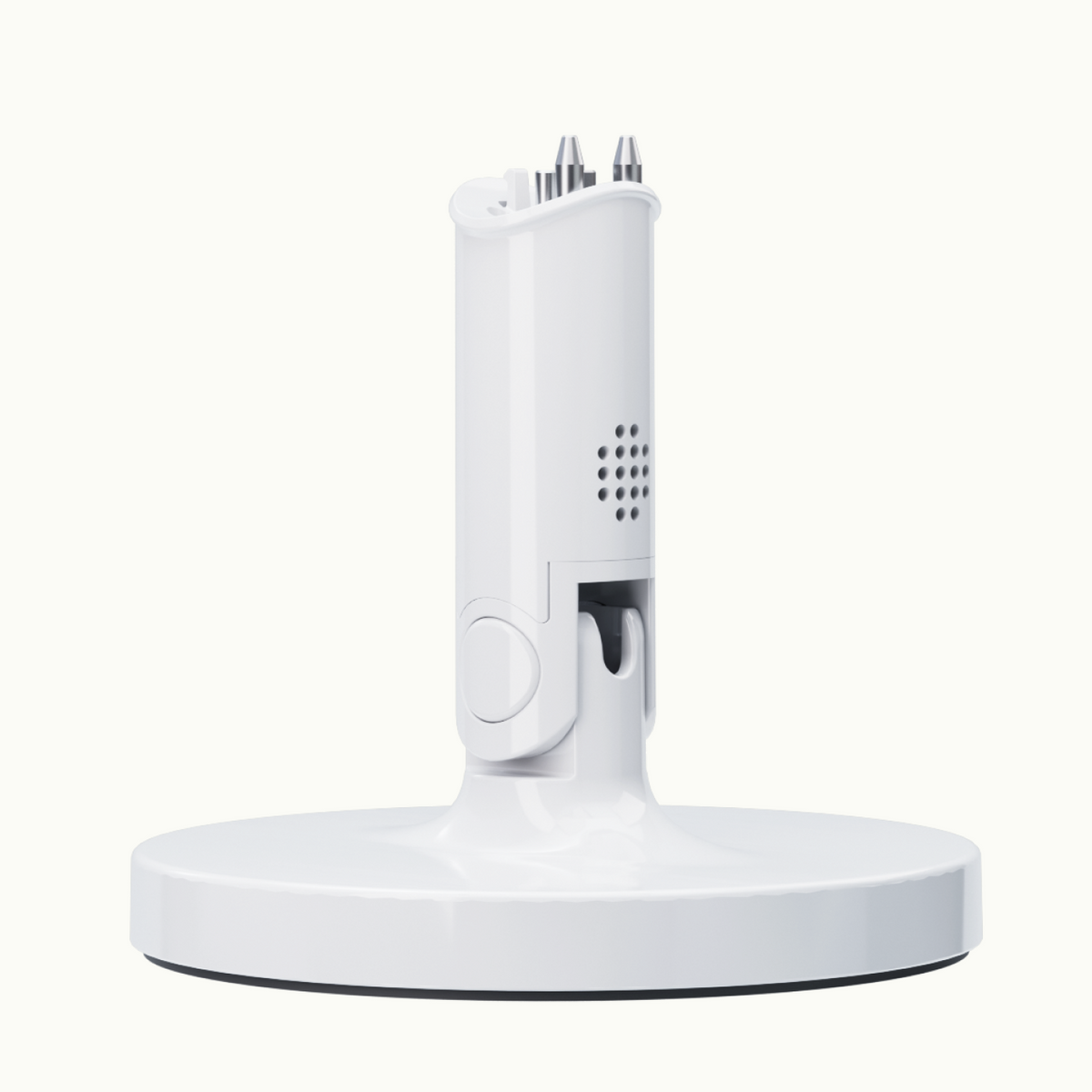Natalie Barnett, Assaf Glazer, Tor Ivry, Michael Gradisar, Michal Kahn, Thomas Anders.
Presented at the Biennial Pediatric Sleep Conference in November 2019
Abstract
Objectives
Previously, there have been inconsistent reports of gender differences in infant sleep. Some studies have shown no gender differences and others have reported gender differences in active sleep, sleep efficiency and total sleep time. With the advent of the Nanit camera system, we have the opportunity to automatically and anonymously generate sleep metrics for babies across North America. The aim of this study was to understand if there are objective gender differences in infant sleep.
Methods
Nighttime sleep videos were automatically collected and analyzed for infants in the US and Canada using the Nanit camera system on babies aged 3-18 months sleeping in their cribs. Nights were included in the analysis if they were more than 6 hours in length, the sleep onset latency (SOL) was greater than zero minutes and the night ended after 5am. The computer vision algorithms measured SOL, total sleep time (TST), sleep efficiency, total time awake, longest stretch asleep, time to bed, time out of bed and the number of parental visits. A total of 1,785,697 nights were anonymously analyzed. These nights were separated between girls and boys and the metrics were compared between the genders using Student’s t-tests.
Results
TST and longest stretch asleep were significantly greater in girls than in boys at every age, time awake at night was significantly lower for girls than boys and the time out of bed in the morning was significantly later for girls than boys at each age (all p’s<0.0001). At age 3, 6, 9, 12 and 18 months, girls slept 9.9, 9.3, 8.7, 7.9 and 8.6 minutes longer per night than boys, respectively. At
age 3, 6, 9, 12 and 18 months, total time awake at night for girls was 9.6, 6.6, 3.5, 2.9 and 3.3 minutes less per night than boys, respectively. No significant gender differences were observed in sleep efficiency, time to bed or parental visits.
Conclusions
Girls slept significantly longer on average than boys at every age group studied, had longer stretches of nighttime sleep, were awake less and got up later in the morning. These data concur with studies of older participants (e.g., adolescents) and are the first to show consistent differences from such a young age with such a large sample size. Although the nightly differences in minutes are small, they nevertheless represent >4 1/2 hours of extra sleep in girls than boys over a month. Future work will further explore these gender differences to understand if there are any corresponding behavioral differences associated with these sleep differences.

About the Researchers
The researchers included Natalie Barnett, Assaf Glazer, Tor Ivry, Michael Gradisar, Michal Kahn, Thomas Anders.

- Dr. Natalie Barnett serves as VP of Clinical Research at Nanit. Natalie initiated sleep research collaborations at Nanit and in her current role, Natalie oversees collaborations with researchers at hospitals and universities around the world who use the Nanit camera to better understand pediatric sleep and leads the internal sleep and development research programs at Nanit. Natalie holds a Ph.D. in Genetics from the University of New England in Australia and a Postgraduate Certificate in Pediatric Sleep Science from the University of Western Australia. Natalie was an Assistant Professor in the Neurogenetics Unit at NYU School of Medicine prior to joining Nanit. Natalie is also the voice of Nanit's science-backed, personalized sleep tips delivered to users throughout their baby's first few years.
- Dr. Michael Gradisar is a Professor and Director and Clinical Psychologist at the Child & Adolescent Sleep Clinic at WINK Sleep in Australia, and the Head of Sleep Science at Sleep Cycle in Sweden. Dr. Gradisar has specialized in the treatment of pediatric sleep problems since 2006. He has provided training to over 420 psychologists throughout Australia on the treatment of pediatric sleep disorders, and published several research studies evaluating the treatment of insomnia and circadian rhythm disorders in children, adolescents and adults. In all, Dr. Gradisar has over 100 publications in peer-reviewed journals, has authored several book chapters, and has presented on sleep-related research and intervention internationally.
- Dr. Michal Kahn is a sleep researcher and licensed clinical psychologist, specializing in pediatric insomnia and sleep development. She is a senior lecturer (assistant professor) at the School of Psychological Sciences at Tel Aviv University, Israel.
- Dr. Thomas Anders graduated from Stanford University (1956) and Stanford University School of Medicine (1960). He completed psychiatry and psychoanalytic training at Columbia Presbyterian Medical Center, NY. A two-year post-doctoral research fellowship preceded his appointment as Director of the Division of Child Psychiatry at SUNY/Buffalo. He also has headed Divisions of Child and Adolescent Psychiatry at Stanford (1974-1984) and Brown University (1985-1992). At UC Davis, he served as Department of Psychiatry Chair (1992-1998) and then as Executive Associate Dean (1998-2002). His long standing clinical and research interests are in the areas of maturation of infant sleep-wake states and pediatric sleep disorders in children with ASD. He has been an NIH funded investigator and served as President of the American Academy of Child and Adolescent Psychiatry (2005-2007).



